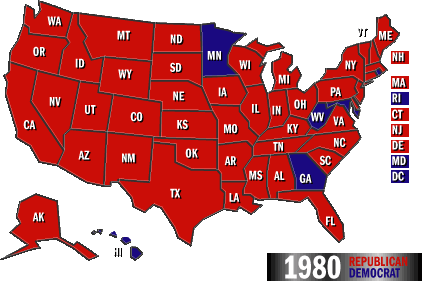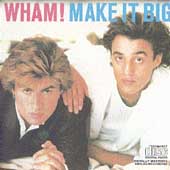I'M NOT TRYING TO CAUSE A BIG SENSATION

Last night I was at the Last Feminista's watching a Nicole Holofcener movie, "Walking and Talking," which naturally got us to talking. And LF, who's just five or so years my senior, was talking about the relative merits of being born a few decades earlier or a few decades later. So afterward I was curious about this and sent him an e-mail that said, "Do you think you were born in the right generation?"
This is his reply:
Any formal training of the mind is bound to leave long lasting traces — scars, if you wish. So I'm sure you, KC, could readily find a legalistic evasion to many a question. In my case, the temptation is to deploy a bit of analytic-philosophy boilerplate and reply that the question is meaningless because I couldn’t have been born into any other generation and still be me.
 For instance, surely it is a small but irreducible part of who I’ve become that I had a “Disco Sucks” sticker on my high school locker? But I bailed out of that concept-parsing career [philosophy] to avoid drowning in stupendously uninspired professional writing. So let’s toss that cheap dodge.
For instance, surely it is a small but irreducible part of who I’ve become that I had a “Disco Sucks” sticker on my high school locker? But I bailed out of that concept-parsing career [philosophy] to avoid drowning in stupendously uninspired professional writing. So let’s toss that cheap dodge.I would say that I’ve been perplexed and disappointed by my contemporaries. But, hey, I was set up. Here’s the lowdown:
My formative environment was Hegelian. Not that any of the responsible parties had read old Georg; if you told them that Hegel was the second-string running back for the 49ers, most of them would have just nodded politely and asked if I liked football.
 It wasn’t informed, but they all had a thorough commitment to the dialectic of Progress. And I seem to remember that all of them walked around with smug grins because Progress had done smashingly well of late, and Middle America was on top of the game. There had been some tough scrimmage of late, but the play came out well: Civil rights was a success, the woman’s movement was soon to duplicate it, followed closely by the gays. (I don’t think that last bit was in our textbooks though.) And that all-important left tackle on the Progress team —Reason — was having a great game as well. The fraudulent Nixon Administration had been hounded out of Washington, and the national magazines were running articles on how religion was past its ascendancy and the churches here would soon be as empty as those in Europe, pressed into service just for the stray wedding or funeral. (This bit might not have been in the textbooks either.)
It wasn’t informed, but they all had a thorough commitment to the dialectic of Progress. And I seem to remember that all of them walked around with smug grins because Progress had done smashingly well of late, and Middle America was on top of the game. There had been some tough scrimmage of late, but the play came out well: Civil rights was a success, the woman’s movement was soon to duplicate it, followed closely by the gays. (I don’t think that last bit was in our textbooks though.) And that all-important left tackle on the Progress team —Reason — was having a great game as well. The fraudulent Nixon Administration had been hounded out of Washington, and the national magazines were running articles on how religion was past its ascendancy and the churches here would soon be as empty as those in Europe, pressed into service just for the stray wedding or funeral. (This bit might not have been in the textbooks either.)And on the international side, the nation was coming to terms with the fact that you can’t succeed in carpet-bombing ardent nationalists into submission, particularly when you misunderstand them to be some sort of geo-strategic agents. Besides the great enemy that supposedly justified killing all those Vietnamese, the Soviet Union was, to those who bothered to look, clearly moldering its way into irrelevance.
 So Progress was moving the ball and running up the score. Of course, there was the energy crisis, and the Japanese were wiping out all the U.S. car and steel plants with their better and cheaper goods. But that just meant our defense had to be Science. With the waning of the Cold War, we could melt down the military dinosaur and dive into the technologies of the future that would let us kick Asian butt. We learned the metric system in the early ’70s because the whole country was sure to be using it by the time we got to college.
So Progress was moving the ball and running up the score. Of course, there was the energy crisis, and the Japanese were wiping out all the U.S. car and steel plants with their better and cheaper goods. But that just meant our defense had to be Science. With the waning of the Cold War, we could melt down the military dinosaur and dive into the technologies of the future that would let us kick Asian butt. We learned the metric system in the early ’70s because the whole country was sure to be using it by the time we got to college.And of course Progress would always mean Liberty, too. Civil rights and the related campaigns were assaults on institutionalized bigotry. We were going to be free of all that. The sexual revolution had kicked out the mores of a bunch of religious prudes. The signs of all this at my high school were promising. If you kept up pretty good grades and took a college bound curriculum, then you were on a program that let you come and go as you wanted. Smoking wasn’t allowed in the building; you had to step outside. (I would stand at the door and laugh at the kids who were freezing their asses off trying to look cool as they puffed away in February.) And while it might not have been on the books, the rule was that if you were smoking dope you had to act like you weren’t, but still get it stubbed out in time that any passing adults could pretend they didn’t smell it. Kind of an early don’t-ask-don’t-tell. It wasn’t all ideal: In a bit of rather bad timing, at the very end of the ’70s, the school nurse or somebody told a whole auditorium of us kids that while some of the sexually transmitted diseases were indeed unpleasant, none of them would kill us.
So there we were poised for what great things? Isn’t it some sort of hormonal imperative that youth must rebel against the oppressions of their elders? That’s where our Hegelian game had to go, right? Then why the hell in 1980 did so many of my generation vote for Reagan?
 And do it again four years later? Hadn’t we figured out that voodoo was no way to run a country? Here comes this reactionary who panders to the religious bigots and is idolized by those who cannot master the principles of basic accounting, and has the presumption to call the Soviets “The Evil Empire” when “The Rusting Regime” would have been more descriptive. Sure that senile old guard had chosen as its swan song to invade and try to occupy Afghanistan. But what kind of threat is a military where the grunts get more calories from vodka than from food? It is all fine and well that Reagan looked and talked better than your real Granddad. But that’s no reason to believe a B-movie actor with an unsteady grasp on reality.
And do it again four years later? Hadn’t we figured out that voodoo was no way to run a country? Here comes this reactionary who panders to the religious bigots and is idolized by those who cannot master the principles of basic accounting, and has the presumption to call the Soviets “The Evil Empire” when “The Rusting Regime” would have been more descriptive. Sure that senile old guard had chosen as its swan song to invade and try to occupy Afghanistan. But what kind of threat is a military where the grunts get more calories from vodka than from food? It is all fine and well that Reagan looked and talked better than your real Granddad. But that’s no reason to believe a B-movie actor with an unsteady grasp on reality.Well maybe Progress is just a scam after all, but why be so quick to become a sellout? When university administrators started talking about reviving the principle of “in loco parentis,” lots of students thought it was a good idea. Or try the “War on Drugs.”
 My generation had been smoking plenty of pot for a decade and we were all pretty well convinced by the experience that it doesn’t do much harm beyond causing some serious munchies. Everybody figured it would be legal in a few years anyway. Then a bunch of propagandists came along with a plan to lock up millions of harmless people, and the reaction was to go pee in a cup for the employer.
My generation had been smoking plenty of pot for a decade and we were all pretty well convinced by the experience that it doesn’t do much harm beyond causing some serious munchies. Everybody figured it would be legal in a few years anyway. Then a bunch of propagandists came along with a plan to lock up millions of harmless people, and the reaction was to go pee in a cup for the employer.But besides all that, why did my generation seem to truly enjoy listening to such bad music?

Maybe it wasn’t the whole generation that was set up; maybe it was just where I happened to be. For one thing, there were no religious nuts on my block. For another, the whole progress-of-the-decades thing might have been particularly easy in our homogeneous suburb. Civil rights was dandy when we had exactly one token black in our school. And the parents could all have faith in the real estates agent’s red lining. The smug grins would disappear fast if you mentioned the possibility of busing.
But perhaps I would rather have been part of an earlier generation that really was sold a grand vision of progress before being kicked in the teeth and hard.
 If so, do you get to pick your part? Isaac Asimov once told of a woman who was captivated by the idea of living back when there were household servants to do everything. So he asked her if she was eager to be a cook or a chambermaid? In my own case then, maybe I could be sitting in some quaint dive on the Left Bank in 1929 drinking cheap and bad wine because I didn’t write “The Sun Also Rises” or “The Bridge of San Luis Rey,” and didn’t get that invitation from Gertrude Stein. But at least I would have liked the jazz.
If so, do you get to pick your part? Isaac Asimov once told of a woman who was captivated by the idea of living back when there were household servants to do everything. So he asked her if she was eager to be a cook or a chambermaid? In my own case then, maybe I could be sitting in some quaint dive on the Left Bank in 1929 drinking cheap and bad wine because I didn’t write “The Sun Also Rises” or “The Bridge of San Luis Rey,” and didn’t get that invitation from Gertrude Stein. But at least I would have liked the jazz.

27 Comments:
This got me thinking about what generation I'd rather have been a part of. The 1920s in Paris or New York would have ben amazing, were I part of a certain social milieu. Or the 1930s in Berlin, when life was still a cabaret. Or the 1960s in San Francisco. Or the 1970s in London. I mean, to have been like 25 to 30 in those years. But I would have had to have been a woman of independent means, like Natalie Barney or Gertrude Stein. Otherwise it would have sucked being a woman, if you couldn't make a living without being dependent on some guy. It's so much easier to be a man and think it would have been better in another time. But for women, it's always like, but we couldn't vote then, or we'd have no reproductive choice, or we'd make a nickel for every dollar a man made, or we'd have to endure endless varieties of sexism.
I've always had am admiration for 1930s America; I think how FDR guided us through the Depression defined our country for the next 50 years (It only took Nixon to bring that down).
The best film class I ever took was Films of the Great Depression. It was the golden age of the Hollywood studio system, and a lot of great movies resulted.
I'd want to be a writer in New York who got hired on a fat contract to join MGM or Warner Bros. to come to Hollywood, sort of an early Barton Fink.
KC, outstanding job on the pictures, well done. The jingoist poster is an inspired touch that I doubt I ever would have thought of. And Wham! Yes, indeed. That’s what I’m talking about right there.
I think our nostalgia tends to mostly be for times and places that didn’t really exist. The temptation is always to imagine yourself as young, well-funded, and well-connected. That’s a rare state of affairs. You are quite right about the problems women faced. Likewise, Berlin in the ‘30s would have been less worthy of song if you were Jewish.
George, part of that conversation that KC and I had was about putting constraints on art such as writing poetry within formal structures instead of the free form styles that now dominate. So since you bring up the Hollywood movies of the ‘30s, what do you think of the affect that the MPPDA Production Code had on those films?
Oh yeah, and at least you know that if the bell in the hotel lobby never stops ringing, you run for the exit screaming.
Yes, George, the '30s were something. I am a big FDR fan, too, especially of how he was a rich, blueblooded bastard who consistently sided with the underdog. Do you ever see that today, really? It seems like all the rich bluebloods today consisitently side with the rich bluebloods. I like how intellectuals united with the working class in that period. People like Dorothy Parker — classic Barton Fink era — would join strikers on a picket line in her flippin' fur coat, holding a martini. She left all her Goddamn money to the Martin Luther King Foundation. I would like to have been her, if for no other reason than when she missed her writing deadlines she got away with telling her boss: "It's because I'm too fucking busy, or vice versa."
DW, I think the production code didn't hurt the industry per se, but it hurt a lot of actors -- Mae West definitely comes to mind, and Dietrich and Garbo to a lesser extent. (Notice that I only named women? Male sex symbols still could get work.)
In that class I saw a lot of films that were very creative in slipping past the code (man and woman in bed, but their feet never leave the floor), and we had just passed the era of German expressionim in film, so the Freudian imagery was everywhere.
So I think it made filmmakers to be more creative in telling stories. I'm not for censorship at all, but I can't help thinking that if we banned sex and violence from today's movies more people would make decent films instead of the crap hitting the screens today.
KC, going back to the biopic subject, HBO had a film called "Warm Springs." It took place before FDR got back into politics after being stricken with polio. That to me is a good biopic; instead of a film that tries to define a person by tracing the entire life, it focuses on the defining moment that made the person everyone already knows.
Oh, was that the film with Cynthia Nixon as Eleanor? I saw part of that. Yeah, that was good.
I read the most amusing book about Greta Garbo and her Hollywood lesbian lovers, including Dietrich. Apparently they met in Europe and did a film together when Garbo was unknown and they had an affair, but Dietrich allegedly made some remark about Garbo being a dumb Swedish peasant, and Garbo, who naively loved her, was crushed and apparently never forgave her for it and wouldn't let anyone say Dietrich's name in her presence, even though they had many of the same lovers.
I'm with you on films possibly being more creative if directors had to think around sex and violence. It's sort of like how Freud speculated that so many of history's great artists and performers were homosexuals because, not being allowed to express their homosexuality, they sublimated it into creative endeavors. So Leonardo, which was his example, and Michelangelo, instead of spending all their time cruising guys in leather bars did things like paint The Last Supper and sculpt the David. Their passion had to be rerouted.
I'm not advocating that either, but there's something to Freud's theory.
That's almost like Freud finding an intellectual way of saying: "You do art? Dude, that is soooooo gay."
I’d agree that censorship is not a simply across the board bad thing. But it sure fails the “better/worse” test. There are, of course, always the options for self-imposed constraint. That won’t eliminate the drivel pumped out in such volume, but it might inspire a few creative types who are looking for a challenge. I’ve always been interested in such ideas. With movies there was the Dogme95. The only film I’ve seen that was “certified” (or whatever they called it) was “The Celebration”. I liked how it was made, but, unfortunately, it had a very much overused premise. I’ve wanted to see “The Idiots”. It sounds like a more promising movie, and might be a more telling test of the project.
So, George, have you seen any of the Dogme95 movies? What do you think of them as films, and what do you think of the rules as a way to film? KC, I bet you wouldn’t like them because of the handheld camera work. There are also supposed to be some novels written—in English—that make use of similar kinds of rules. I’d like to track one of those down.
In Freud’s unpublished writings there is an article about interior decorators, too.
The only one I've seen is "Julien Donkey-Boy," and I didn't see all of it. From what I remember, I have trouble with it as a Dogme 95 film; I thought the point was to focus on the storytelling, but everything's told in vignettes, and a lot of it doesn't make sense.
I'm like kc; I'm not a big fan of handheld -- it gives me motion sickness. I like the idea of a minimilist filmmaking, but Dogme 95 can take it a bit far. If all you care about is the acting and storytelling, then it's maybe just a step removed from theater.
If you take out the visual asthetics, you're undermining cinema as an artform.
First, I thought about doing the Larry Darrell experience in "The Razor's Edge." But I doubt you could travel like that as a single woman, or have the independent means, so scratch that.
I think the perfect bubble would be about five to 10 years earlier than I was born. I'd at least want the advantages for young girls in the mid- to late '70s where there were equal opportunities at school, like sports. (Not that I played sports.) And the relaxation of gender roles and social mores of the same time period (although I was militant youth group and self-imposed my own moral standards). I am a shame to the sisterhood? Don't answer that.
I think adolescence and some high school in the '70s would have been better for enjoying a modern America before the materialism and uptight attitudes of the '80s. (But as bad as some as it was, I kind of love '80s culture. Not that it was as cheesetastic as ABBA, Neil Diamond, "Saturday Night Fever" ... etc.) I think if I'd been born about 10 years earlier, then I'd have retired from newspapers before they ceased to exist, before energy and health costs would cripple me financially, and before the environment self-imploded.
Am I wrong? Somebody cheer me up.
What is interesting in Dogma 95 is that it does remove so much of what we think of as cinematic—perhaps too much. Still, I would think that one or two great films could be done according to the rules. I’m not sure I would want that type of minimalism to become common. For instance, I’ve just discovered Wong Kar-Wai, and I’m very impressed. Both of the movies I’ve seen are very spare in the “doing things” sense, but very rich otherwise. The visual aesthetic is amazing with detailed and balanced textures, forms, and lighting. “In the Mood for Love” is far and away the best film I’ve seen in a long time.
CL, umm, are you saying you want to buy into the generation I’m talking about buying out of? That’s cool. When I started that essay I had planned on saying several other things that I cut out because I didn’t want to go much beyond 1000 words. One of the dropped bits was why I maybe would have wanted to be born later. I used a calculator in my math homework in the early ‘70s only because my dad was an engineer and the firm had given him a $500 digital calculator. Before I graduated from high school, I finally got a small computer that could do “word processing”. Well, really it couldn’t. It only had memory for about 2000 words so longer text had to be broken down into smaller files. And of course, it had no spell checker. Ask KC if she thinks I could function without a spell checker. It was grim. When I was in grad school, I helped some friends run a computer bulletin board that was just like this blog except it couldn’t have any of KC’s wonderful pictures, it was very slow, and you had to directly phone every damn computer you wanted to talk to. I would have loved to have all this cool communications stuff in high school. Of course, I might never have gotten around to doing any of my homework.
DW: I think a birthdate around '69 or a little earlier would have been perfect, at least for a tightly wound-up type like myself. Would you give up the calculator for the right to smoke during the school day?
DW, yes! Wong Kar Wai rules! Everybody would go on and on about John Woo, but I'd tell them to go see "Fallen Angels." No big special effects, but a lot of really good camerawork that makes an incredibly stylized movie.
Here's my contribution to this cinema discussion: Gertrude Stein looks kind of like Martin Scorsese in that picture.
George, have you seen "2046"? What did you think?
Yeah, Stein resembles Scorsese. Maybe that's why Hemingway and Fitzgerald were scared poopless of her.
CL, no, I wouldn’t like that trade. Perhaps what I like best about the technological changes is that I now see a large number of good movies. There is IFC and Sundance on cable, all kinds of things are available on DVD, and there are plenty of people and sites on the internet that give me good ideas for what I want to see. Until I got to college I watched the same crap that other teenagers were watching. At college I met some film buffs, but our options were still pretty limited, and videotape just wasn’t as good as DVD. So I still feel like I’m way behind on my cinematic education.
But then I look at how parents more or less my age have been raising their kids and I cannot believe it. Its like they keep them in cages and then put them on a leash to take them to the next cage. It would have driven me insane. For instance, once in seventh or eighth grade a friend and I made an ultra-violent comic book—totally over the top. We didn’t know any literary theory, of course, but the motivations were probably about the same as those of “transgressive” fiction. My friend was a good artist, so the result was detailed and graphic. When we were done, we showed it around. It lived up to our expectations by grossing out most of the girls and a few of the boys. I feel sorry for any kids trying such a stunt today.
No, I haven't seen 2046, but I really have been wanting too.
I'll see if I can find it in Tulsa somewhere.
Hehe. You would be carted off to some juvenile detention center. And there'd be a story about how you were hatching a plan to wipe out your school. And all the neighbors would say you were such a good, quiet boy. "Really, he just climbed trees like a little monkey and sat around doing math on a calculator. Wouldn't harm a fly, I thought."
G, Liberty Hall has that film, but I can't watch it with you Tuesday because I just saw it with DW. I thought it was very beautiful, but I felt kind of lost watching it. Like romantically lost.
George, it’s always fun to discover a great filmmaker and also find out that there is a good size body of work. So I’ve seen two of Wong Kar-Wai’s movies and have several to go. So far it seems like I’m working backwards having started with “2046” and following it with “In the Mood for Love”. Usually I hold the use of a voice-over against a film since it is often a sign of sloppiness or laziness or is just simply superfluous. But although “2046” has heavy voice-over, I didn’t mind. Probably that is because the character doing the voice is a writer and he is reading from stories he wrote that figure in the film.
I don’t have much enthusiasm for John Woo, but I guess many people do.
KC, I fear you are too right about that. Nobody ever says "ah they’re just kids" anymore. But, hey, we were just kids.
And KC, on the basis of the two I’ve seen, Kar-Wai is an absolute master of the romantically lost. All the same, I think I could watch “In the Mood for Love” over and over.
So I mentioned wanting to see “The Idiots”, and now I find that it is being shown on Sundance tonight at 1 AM. I guess I have to decide if I want to watch it enough to stay up till 3. Who does their schedule anyways?
Maybe their best movies are late because they're catering to a certain crowd. I never had a film class that started before 11 a.m. I think midnight is considered the beginning of primetime for film students.
That’s it. I knew I should have been a film student. I had all these 8 AM classes in...something I slept through. Maybe I should go back to school. Anyway, I figured I needed to get up before noon today so I’ll have to watch that one some other time.
But maybe you are right. They do seem to schedule a lot of good ones really late. Foreign, in particular.
OK, the Hollywood Video in Brookside had "In the Mood for Love" and "2046," so I watched both this afternoon before work. Wong Kar-Wei is the fucking master.
"In the Mood for Love" I could watch with no dialogue -- it's a clinic on cinematography. It was so well shot; everthing was framed perfect, the composition in the shots and camera movements -- I was actually screaming in ecstacy watching this film.
While "In the Mood for Love" was all about the frames within the frame, "2046" was about the stories within the story. But really it's a great continuation from the first movie. It picks up right where you left off, but a lot different stylistically. But fitting because of how the character has changed after the first relationship ended.
Now I want to watch "Chungking Express" and "Fallen Angels" all over again.
George, That sounds exactly right for summing up both movies. Even the story of “In the Mood For Love” with the principals role playing their spouse’s affair, is part of that theme. Certainly the mirrors are. I hope I can see that one on the big screen someday.
Having seen them in reverse order, I wasn’t sure of the extent to which the character in 2046 was a continuation of the character from “In the Mood for Love” or just one with a similar background. There was, of course, Room 2046, and he also told the bit about telling secrets to a hole in the tree. But the dates and events don’t really match do they?
Post a Comment
<< Home